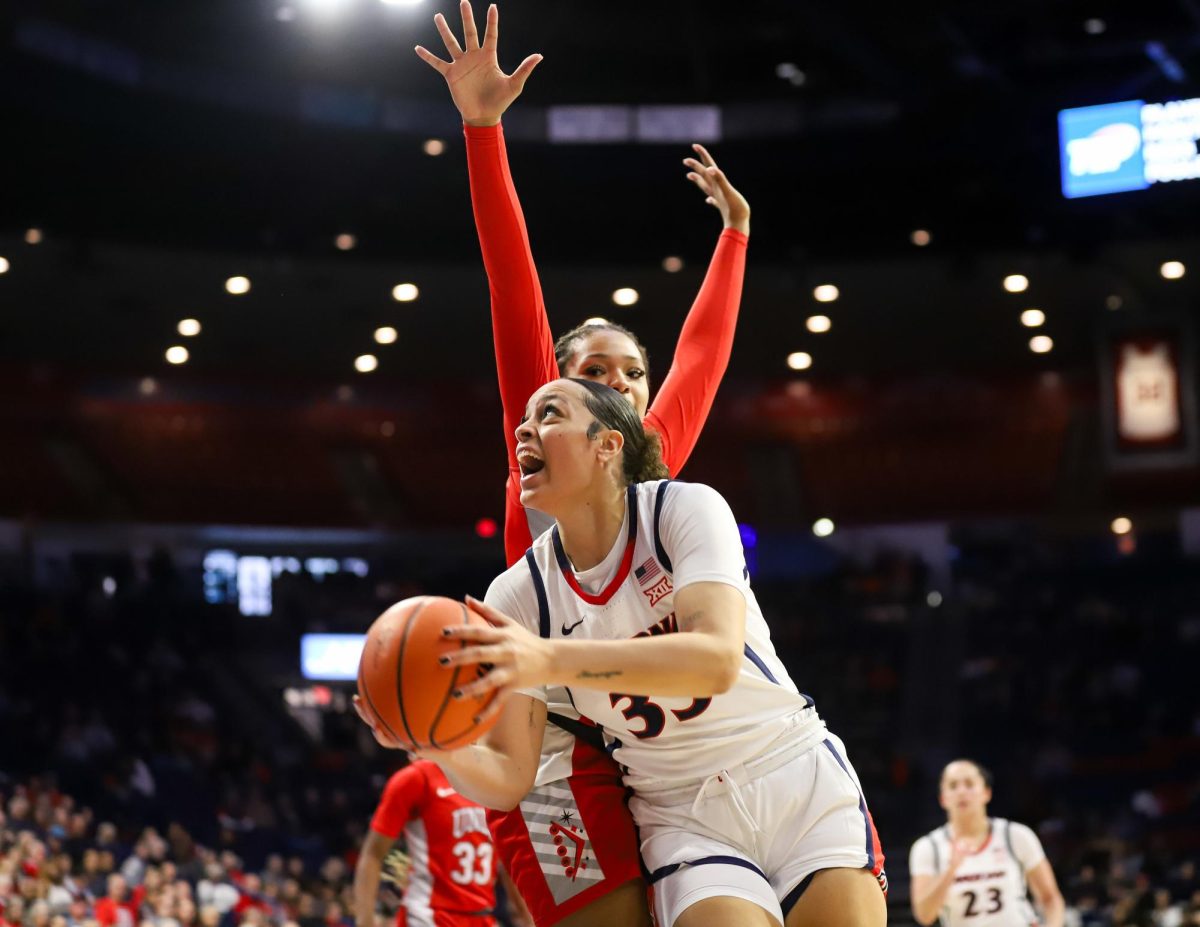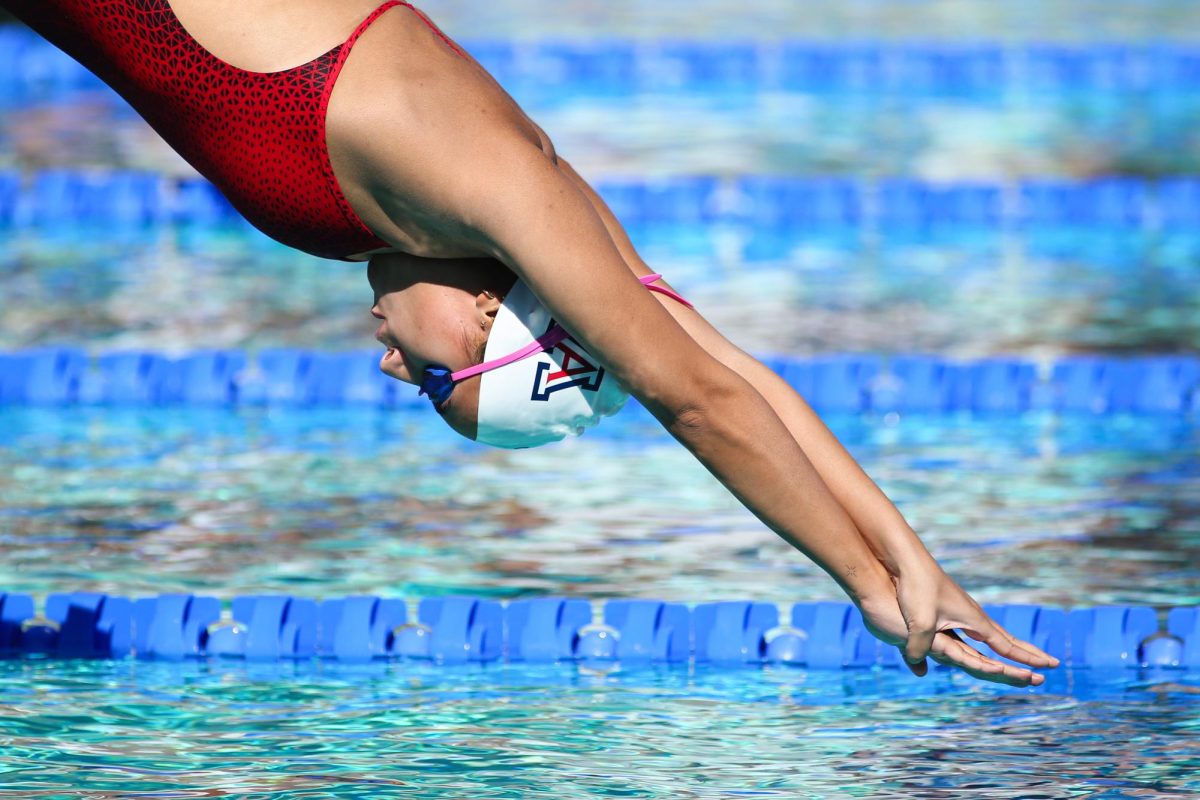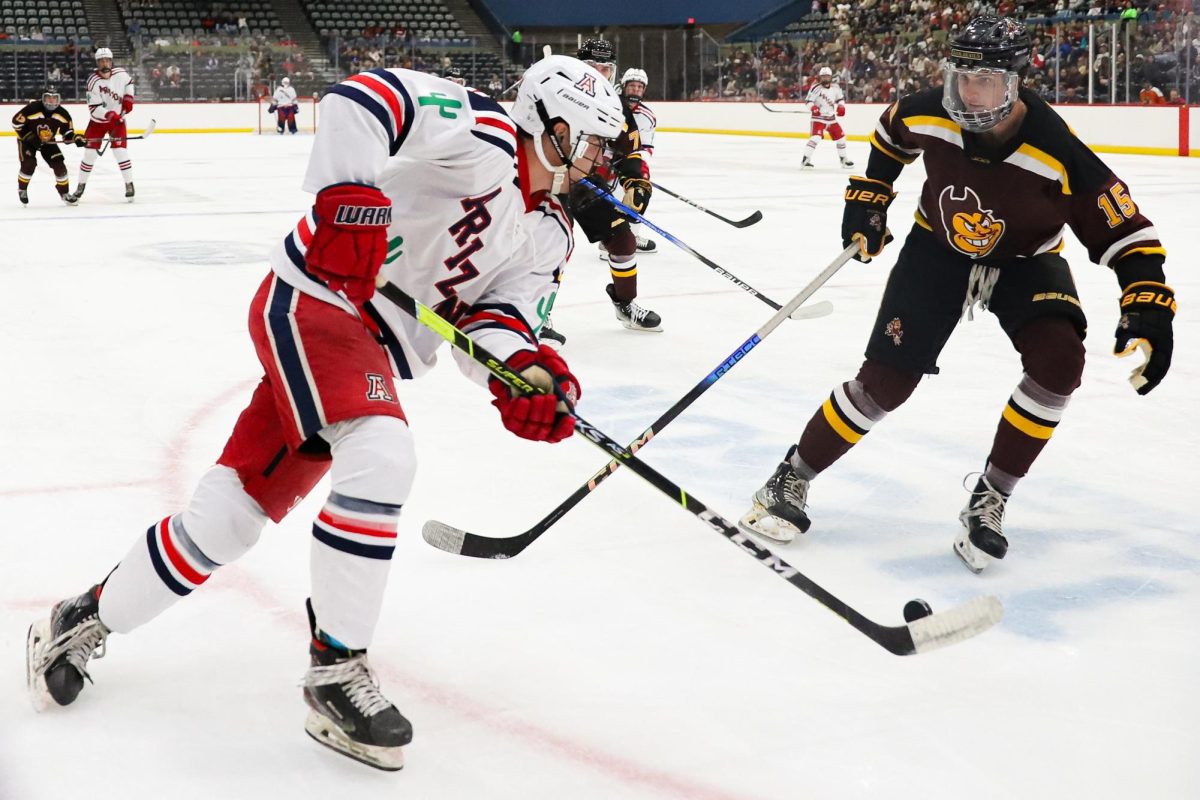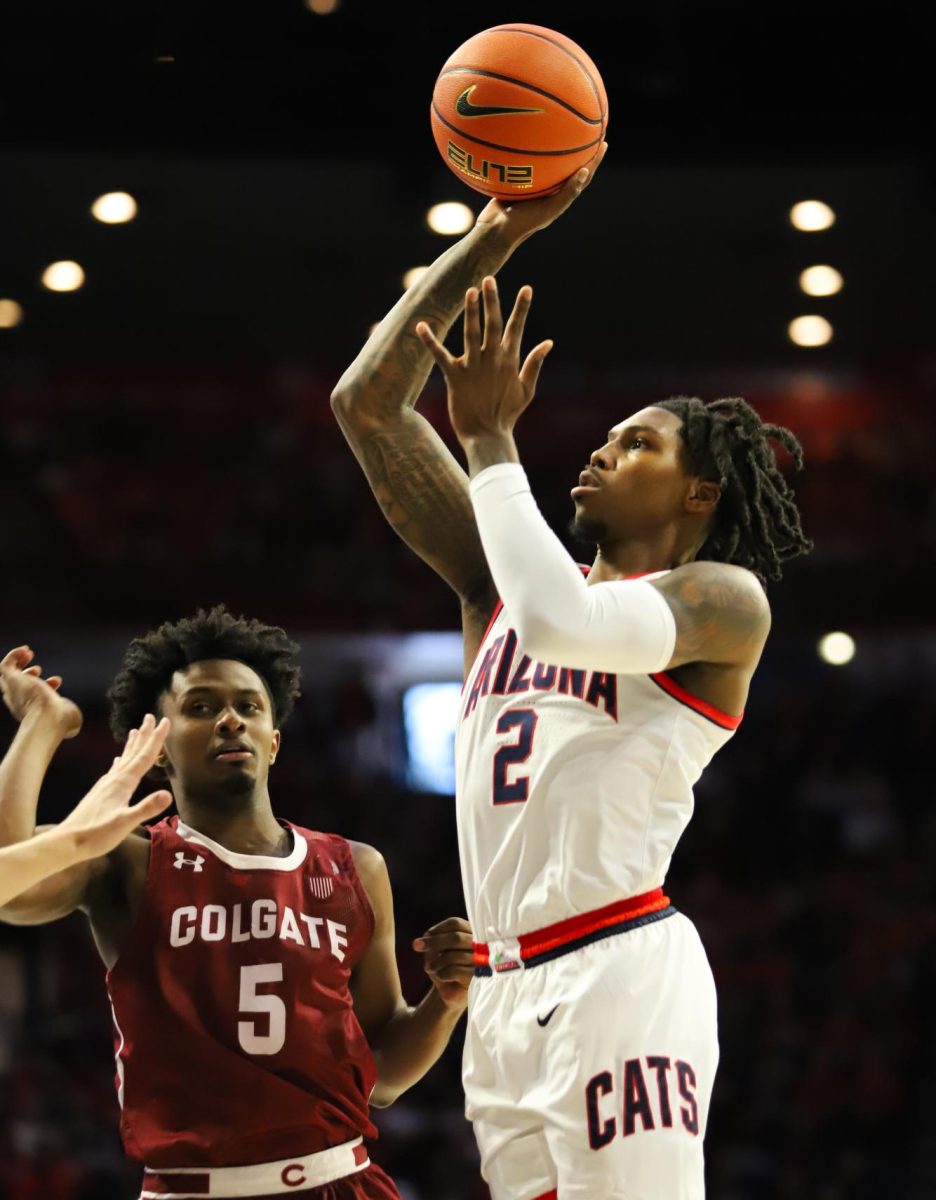It’s a late Monday afternoon at Hillenbrand Aquatic Center, and the UA swim team is finishing up one of its nine weekly practices. To end practice on a competitive note, head coach Frank Busch calls out for a quick men vs. women race.
With game faces and goggles on, the horn sounds, sending the swimmers into the water. Women take the first of the two, and the second was a toss-up. Regardless of the outcomes, the friendly competition is aimed to make them stronger.
“”I want to form my team into the best possible team they can be,”” said Busch, who’s beginning his 22nd season as head coach.
The team has been training hard in and out of the water to prepare for this season. Practices are comprised of swim workouts, running workouts, core and upper-body strength training. The team hits the weight room twice a week.
Rewinding back to last season, despite half of the team being hospitalized days before the national championships as a result of the Norovirus infection, the then-No. 1 men’s team finished third, while the women’s team finished fourth.
The team collectively lost 16 seniors last year, eight men and eight women. Generally, this would produce a lackluster outlook for the upcoming season, but for Busch’s team, that’s not the case at all.
“”There’s some talent in the freshman class,”” Busch said. “”It’s really hard to predict what they’re going to do after just one event, but we are going to count on our freshmen to do good this year. We have no choice, a third of our team is freshmen, on both sides.””
Part of helping the freshmen succeed will come from the leadership of older players, like junior Cory Chitwood.
“”I am just trying to lead by example to the freshmen,”” Chitwood said. “”Actions always speak louder than words and that is how I plan on helping lead the freshmen.””
In order to get the new faces acclimated, Busch broke tradition and took part in a weekend event in mid-October. UA swim and dive hosted ASU, UNLV and Kansas in a two-day meet.
“”Normally we don’t swim meets until November, I just thought with 16 new freshmen it would be a good idea to give them a chance to do another competition,”” Busch said. “”It was good for them to see what a college meet was all about. It was important that we did it.””
The women freshmen proved to be getting acclimated, sweeping the dual meet by beating Kansas, 178-84, and UNLV, 176-82. The Wildcats and Sun Devils didn’t compete because of their future dual-meet.
The men lost 138-123 to UNLV, but did learn something about their team.
“”We swam people in some off events,”” said Busch. “”It wasn’t a great time to highlight anything. I moved some people around.””
Of all the newcomers, Busch was most pleased with freshman Margo Geer. Among her personal wins and numerous team contributions, her most distinguished race was her win in the 50-yard freestyle with the time of 22.77, a NCAA consideration time.
Geer, along with the seven other freshmen women were combined to make the No. 2 recruiting class in the country.
Junior captain of the women’s side, Alyssa Anderson, also made some notable contribution. Anderson won three events: the 200 fly in 2:01.41, the 200 free in 1:48.93 and the 200 I.M. in 2:05.80.
For the men, 200 backstroke national champion and captain, Chitwood, won the 200 I.M. in 1:50.42.
“”I felt my performance in the first meet was solid but a little sloppy,”” Chitwood said. “”We just have to learn how to swim each meet like it is a championship meet to get this young team ready for a championship season.””
Last year the men’s team went undefeated in dual meets, but despite dropping the first one this year, Busch is keeping an even perspective.
“”For us, we want to be good in our dual meets, but we want to be the best in the NCAA’s,”” Busch said. “”We go to a meet in December called the Texas Invitational and there are standards we try and make the qualifying standards. Generally, no one will make a standard in a dual meet.””
The Texas Invitational in December and national championships in March are the two meets the team really focuses on.
“”There are some teams that are really good in dual meets and still perform pretty well at the end of the year,”” Busch said. “”But in our case, we’ve never quite had enough quality to be superstars throughout the year and do really well at the end. We’ve had quality, not quantity, on our team for the most part, so we just focus on doing well at the end.””








